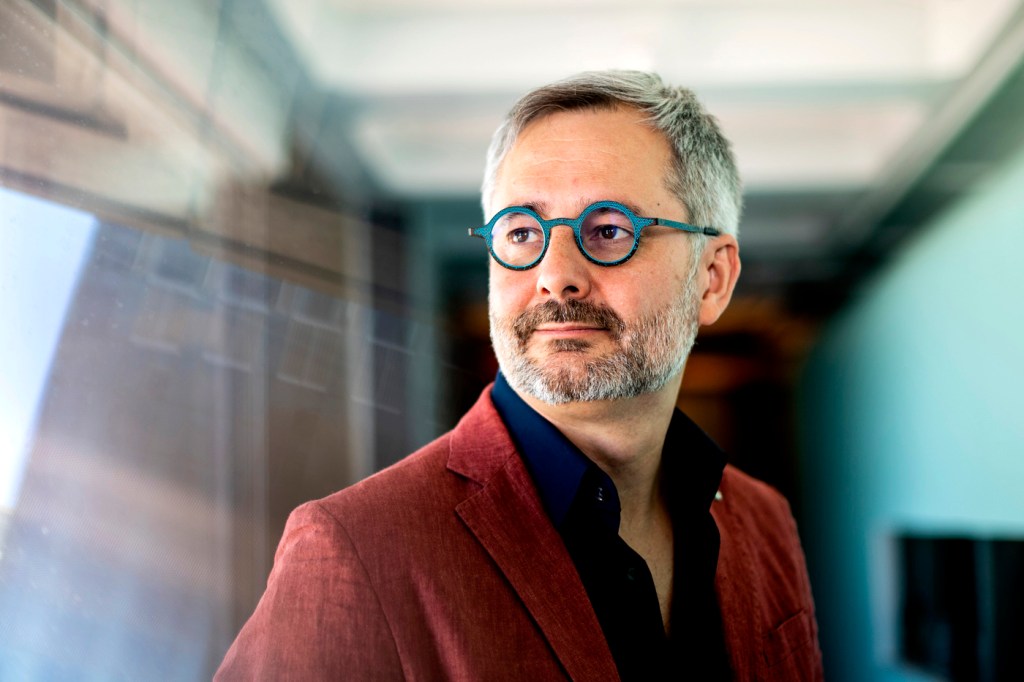Northeastern network science professor Albert-László Barabási elected to National Academy
of Sciences
The Dodge professor of network science and distinguished university professor of physics says the recognition acknowledges that the “pursuit of network science deserves a place in the academic canon.”

Albert-László Barabási was sitting in Central Café in Budapest, Hungary, when he got the call that he had been elected to the National Academy of Sciences (NAS) for his work in network science.
Network science’s recognition has felt like a long time coming, he says.
In 2005, the National Research Council — “the operating and principal programmatic arm of the National Academies,” according to the National Academies website — published a report titled, simply, “Network Science.”
Featured Posts
In it, Barabási says that “the Academy officially defined network science as an independent field of investigation that is not just simply part of mathematics or physics,” but an arena with its own set of questions that warrant specific pursuit and unique methods.
Barabási, the Robert Gray Dodge professor of network science and a distinguished university professor of physics at Northeastern University, has pursued this line of research since 1995. Now he becomes the first Northeastern faculty member to be elected to the NAS while employed at Northeastern.
Herbert Levine, university distinguished professor of physics and who is also a member of the Academy, was elected to the organization prior to joining Northeastern.
Network science, Barabási says, examines how networks “determine our lives.” In the Barabási Lab, he and his researchers have studied how networks affect everything from subcellular, genetic interactions to how professional connections can aid success, to how art philanthropists give within their communities.
Society itself, Barabási says, “is really nothing but a sum of many social and professional ties.”
Network science, he continues, focuses on how “to understand the underlying [mathematical] patterns and laws that govern these real networks.”
While a member of five other academies, including the Massachusetts Academy of Sciences and the European Academy of Sciences and Arts, Barabási says that “the National Academy is very special, because it is the official stakeholder of what science means in the United States.”
“Its members,” he continues, “get to weigh in on many issues pertaining to national and scientific policy — and internationally as well.”
Barabási views this honor as a recognition of network science as a whole. “Network science is a new field,” he says, “that only recently found its position in the scientific canon.”
“Particularly, this is important for Northeastern because we have the leading network science institute in the world,” he continues.
“And now the members of the National Academy have acknowledged that the pursuit of network science deserves a place in the academic canon — I think it’s a big honor for the whole field.”
The fact that he sat in the Central Café when he got the call carries special resonance for Barabási — it was there where the concept of six degrees of separation was first posited by Hungarian writer Frigyes Karinthy.
The cafe “is officially considered the birthplace of network thinking.” It felt like a very symbolic moment, he says.










